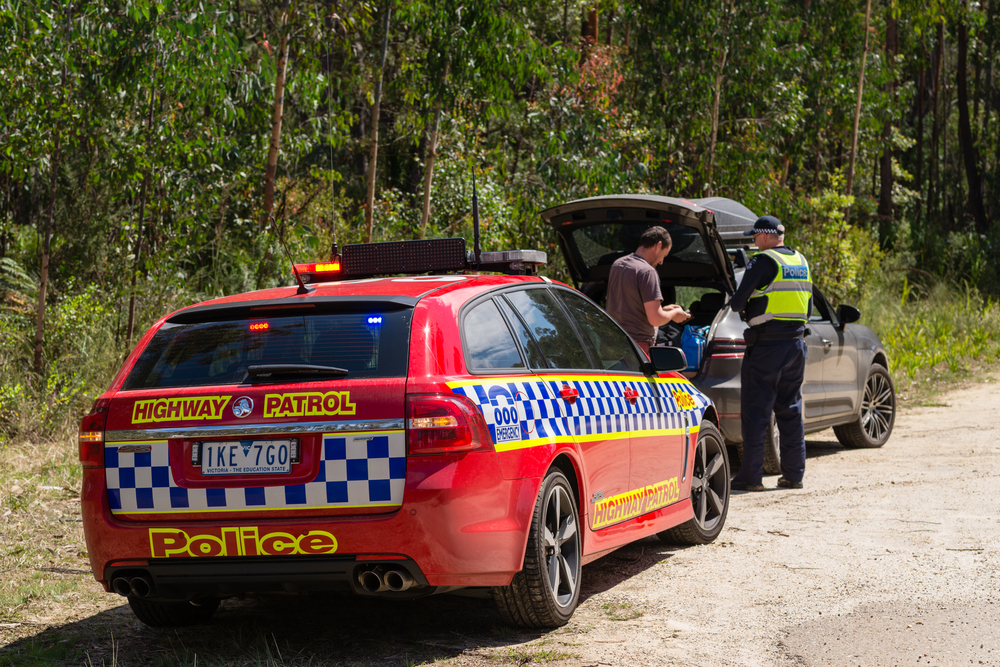Share This Article
The Transport Accident Commission (TAC) in Victoria has suspended a $4 million road safety funding it had previously granted to Victoria Police.
This came following revelations from an internal police investigation that over a 5-year period, over 258,000 breath tests were falsified by police officers in attempts to return negative readings.
It is reported that fifteen hundred preliminary breath test devices and over seventeen million breath tests that were conducted over 5-year period that were reviewed, over 258,000 preliminary breath test devices were in fact falsified. This accounts for one and a half percent of all tests.
Police internal investigations revealed that police officers were covering the straw entry hole of the breath testing device with a finger, and in other instances, they were blowing into the devices to return negative readings.
Notwithstanding this, police say that the public results from breath tests were not affected.
Russell Barrett, the Professional Standards Command assistance Commissioner is reported saying, “We’re going to ask why this has occurred so we can learn from that and prevent repetition of it and like practices in the future. Our reputation’s tarnished in the eyes of the TAC and in the Victorian community. We can’t walk away from that”.
Mr. Barrett is also reported saying, “the question we all asked was why? There could be a number of reasons but the main rationale I believe is to hide or highlight productivity. Whatever reason our workforce may come up with, it isn’t acceptable.”
The investigation uncovering all this was headed by the former chief commissioner, Neil Comrie who’s report discovered that while faking tests occurred over a long time, there is no evidence to suggest any involvement by a senior officer.
The investigation also uncovered that the tests were predominantly being faked by police officers due to “meaningless and unachievable” targets with “no reasonable or scientific basis”.
The requisite target expressed that 99.5% of all the preliminary breath tests will return alcohol readings below the legal threshold limit. This creates a view that the force’s performance target will not be met if positive readings are returned for more than 0.5% of all preliminary breath tests conducted per year.
Such performance targets are inconsistent with the force’s ultimate duty to protect the community given that these performance targets effectively cause officers to avoid detecting drivers who are over the legal limit on the roads.
While falsifying roadside breath tests was not a criminal offence, the reports from the investigation have made twenty-three recommendations, which Victoria Police have accepted, including mandatory training in ethics for all police officers once every two years, and an amendment to the set performance targets to be made more achievable based on evidence.
Police Powers to Conduct Random Breath Tests in NSW
A police office has the power to require any driver on a NSW road at random to stop for the purposes of conducting an RBT under Division 2 of Schedule 3 Road Transport Act 2013 (NSW). This test is known as a road side breath test which only gives a rough reading indicating whether you are positive or negative for alcohol in your breath or blood.
A positive reading allows police to immediately arrest you without having a warrant before then taking you to the police station or a mobile police bus to administer a proper test. This test is referred to as the breath analysis which gives an accurate alcohol reading that can be relied upon in court to prove drink driving charges in court.
Refusing or failing to stop your vehicle at the request of police for an RBT carries a penalty of up to $1,100 fine.
The penalty for failing to provide a breath test at the road side does not carry a licence disqualification, but it does attract a penalty fine of up to $1,100. However, refusing or failing to provide a road side breath test will allow police to use force to take you to a location where a breath analysis can be conducted.
Failing to provide a breath analysis carries heavier penalties, including a $3,300 fine and/or 18 months imprisonment with an automatic licence disqualification period of 3-years (or a discretionary minimum disqualification of 12-months) if it is considered your ‘first offence’.
If it is considered your ‘second or subsequent offence’ the penalties are heavier, including a maximum penalty of up to $5,500 fine and/or two-year imprisonment, and an automatic licence disqualification period of 5-years (or a discretionary minimum disqualification of 2-years).
You will not face any of these penalties if the court is convinced to impose a non-conviction penalty, including either a non-conviction Conditional Release Order or section 10 dismissal.
When Are Police Not Allowed to Conduct an RBT on You?
The laws on drink driving in NSW can be complex.
The police are not allowed to conduct a random breath test (road side test) on you in any one of the following scenarios:
- It would be dangerous to your health due any injuries you have sustained.
- If more than 2-hours have passed since you last drove.
- If you are on your driveway or on your private property.
- Where at the time, you were not driving the motor-vehicle, or you were not attempting to put it in motion.









